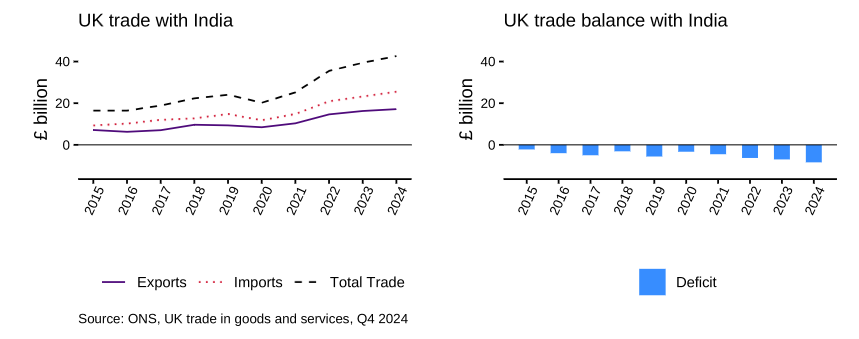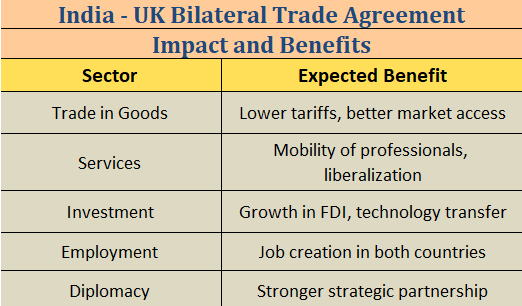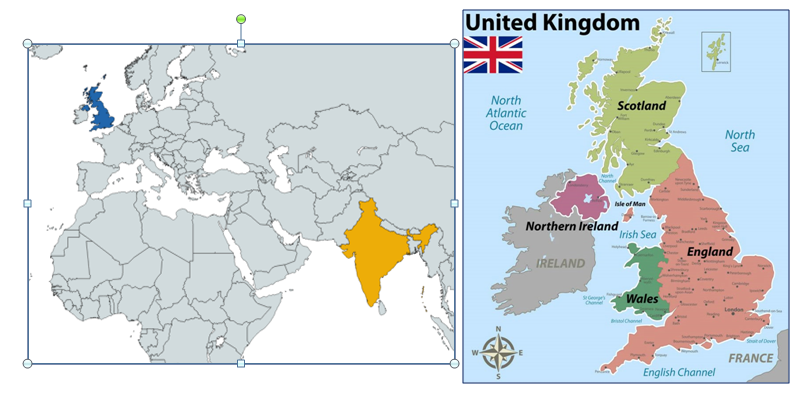On May 9, 2025, India and the United Kingdom finalized a landmark Free Trade Agreement (FTA) after over three years of negotiations. This agreement is poised to reshape trade dynamics between the two nations and has significant implications for various industries.
India – UK have been in bilateral trade for years now.
India is a Trade Surplus between the two countries.

The Importance of India – UK Agreement
- Eliminates or reduces tariffs on a wide range of goods (e.g., textiles, whisky, automobiles, pharmaceuticals).
- Double bilateral trade (currently around USD 20–25 billion) by 2030.
- Offers Indian exporters greater access to the UK market, especially in engineering goods, textiles, pharma, and IT services.
- UK exporters gain better access to India’s large and growing middle class market.
- Reinforces the India–UK Comprehensive Strategic Partnership (2030 Roadmap).
- Positions India and the UK as strong allies in the Indo-Pacific region amid global power shifts.
- Enhances cooperation in climate change, defense, cybersecurity, and sustainable development.
- For the UK, the deal strengthens its “Global Britain” agenda post-Brexit.
- For India, it adds another major FTA (after UAE, Australia) and showcases India’s readiness to play a central role in global trade frameworks.

Key Provisions of the India–UK FTA
- Tariff Reductions: India will eliminate tariffs on 99% of British goods, including whisky, automobiles, and medical devices. Conversely, the UK will reduce tariffs on Indian exports such as textiles, leather, and engineering goods. Notably, whisky tariffs in India will decrease from 150% to 75%, with a further reduction to 40% over the next decade.
- India has gained market access in all industrial goods at ‘Zero duty’ on entry into force. It covers sectors like leather, footwear, textile and clothing, gems and jewellery, base metals, furniture, sports goods, transport/auto components, chemicals, wood/paper, mechanical/electrical machinery, minerals.
- Trade Volume Increase: The FTA is expected to boost bilateral trade by £25.5 billion annually by 2040, contributing an additional £4.8 billion to the UK’s GDP each year.
Industry Specific Impacts for UK and India
Textile and Apparel Medical Devices
Automotive Sector Pharmaceuticals
Alcoholic Beverages Services Sector
The India – UK Bilateral Trade Agreement will be implemented upon mutually agreed dates in both the countries.

